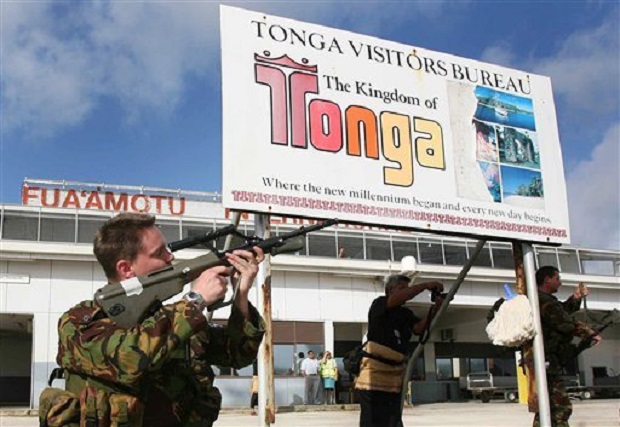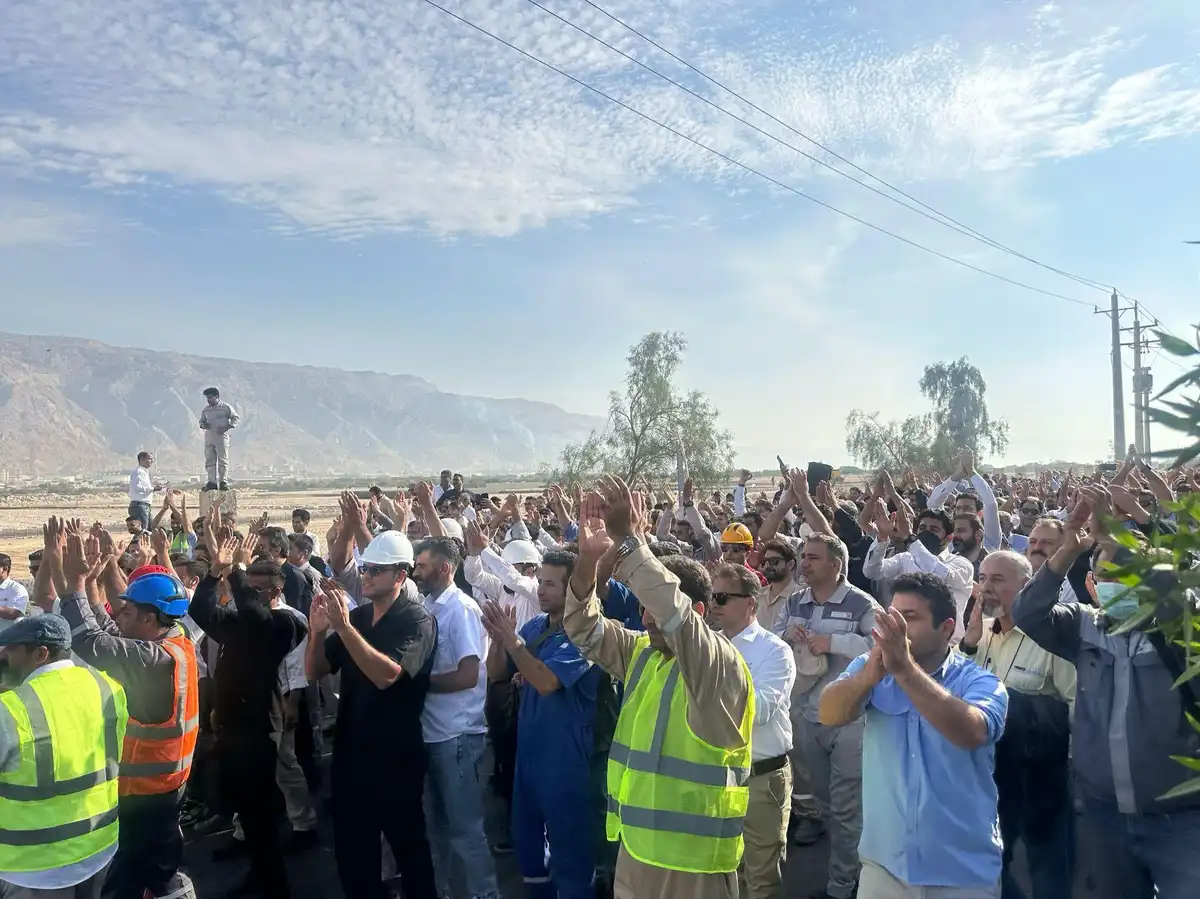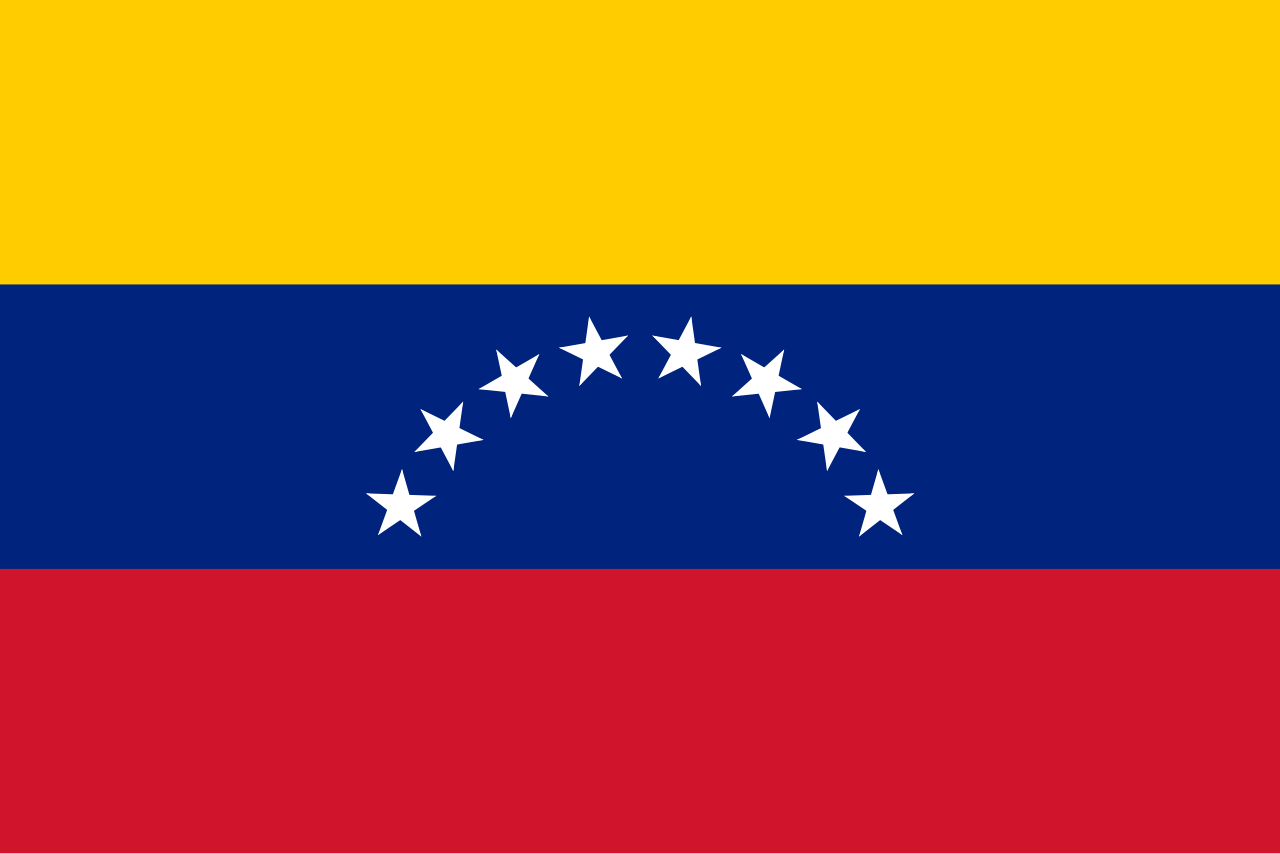Tonga, once a sleepy island kingdom sunk in tradition and religion, was rocked by riots on Thursday 16 November 2006, as frustration with the royal government hit boiling point. Almost overnight, Australian and New Zealand troops appeared on the scene patrolling the scarred streets of the capital Nuku’alofa and controlling its airport.
“Our presence is not about taking sides. New Zealand has been fully supportive of peaceful democratic reform in Tonga,” said New Zealand foreign minister Winston Peters. But Tongan academic Dr Sitiveni Halapua said the word on the street in Nuku’alofa was that the foreign troops were there “to make people afraid and to support the government.”
The monarch has been the focus of increasing discontent in Tonga, which is still ruled by feudalism. Three quarters of the land is owned by the ‘nobility’, and the prime minister and deputy prime minister are appointed by the king, as well as many judges and most cabinet ministers. Only nine of the 32 MPs are elected by ‘commoners’.
Strikes by civil servants last year against low pay and the privatisation of public services snowballed into a massive civil disobedience campaign against the decrepit 87-year-old king. When he died in September, royalist nobles fooled themselves into thinking that the public show of mourning (which was anyway compulsory) meant most Tongans didn’t want change. Australian High Commissioner Colin Hill encouraged the new king, Oxford educated George Tupou V, to drag his feet over democratic reform. “Too rapid democratisation could lead to instability in Tonga, and I wonder whether the majority of Tongans really want rapid change anyway,” Hill said. Prime Minister Fred Sevele, confidently said he was “99 per cent” sure the anti-monarchy unrest was a thing of the past.
But slow-burning anger at the monarchy could not be defused from the top. Privatisations and free-trade policies have impoverished ordinary Tongans, while the royal family has enriched itself massively. The new king, George Tupou V, is a multimillionaire thanks to control of Tonga’s electricity generation, its beer company, half its unexplored oil supply, one of its mobile phone companies, a cable television company and the rights to Tonga’s Internet domain name.
But the reckless greed of Tonga’s aristocracy has not just angered ordinary Tongans. Local business owners, politicians, and professionals who have no problem with the monarchy’s right-wing social and economic agenda believe that the looting of Tonga’s wealth has been unfairly dominated by the feudal nobility. These elements have seized on the civil service workers’ strike and popular anger at the king to push for a ‘democratic’ regime that they can dominate.
This conflict between urban business elites and the old nobility is nothing new – what’s unusual about Tonga is that the monarchy has hung on so long, while kings and queens have been toppled all through the rest of the world. Feudalism is an economic system based on land ownership that has been steadily superseded by capitalism. This has often meant a violent, revolutionary struggle between the rising capitalist class and the old aristocracy. Always the struggle has been decided in the end in the favour of the business class, often with a guillotine.
Whenever monarchy has survived, it’s been on the sufferance of the new ruling class. Queen Elizabeth us as much a relic of feudalism as Tupou V – with the difference that Elizabeth is an employee of the British ruling class, while the Tongan monarchy has existed at the sufferance not of Tongan business owners, but of a foreign ruling class – first British, and now Australian and New Zealand.
Now that the monarchy can no longer ensure political stability it is no surprise that Australian and New Zealand government support is evaporating – both they and the Tongan urban elite that leads the pro-democracy movement know that a change in the regime would not change the economic dependency of Tonga on NZ. “We’ll push for as much democracy as can be gained in Tonga,” Clarck declared recently. “Tonga has been a feudal monarch, and there is no place for that in the 21st century.”
Most likely a new “democratic: government would be even more dependant on foreign support; it would support free-trade, open up more of the country to foreign corporations, and attack the wages and conditions of working people more vigorously. The 80 per cent wage rises that the king was forced to give the civil servants would be the first to go, and the sale of land would likely force more people into wage slavery either in Tonga or overseas.
The Return of Colonial Government
New Zealand and Australia are far and away the biggest countries in the South Pacific. Therefore, our rulers say, we must take on the bigger burden of ensuring peace and stability in the region. The lightning deployment of New Zealand and Australian troops to Tonga is not colonial-style gunboat diplomacy, they argue, just being good neighbours.
Aussie and NZ soldiers and police are currently being neighbourly in Tonga, as well as the Solomon Islands and East Timor. Warships and troops are on standby in case of instability in Fiji as well. For almost a decade, Australian military analysts have warned of a worsening “arc of instability” stretching from Indonesia to Melanesia. These predictions are coming true as the cash-strapped Pacific states are starting to fall apart.
But this is not just charity work for insignificant little atolls. The 14 Pacific Island countries (including Papua New Guinea) have almost double the population of New Zealand (over 8 million people), a combined land mass of 530,000 square kilometres, and untold mineral wealth, plus fisheries and lumber. And neighbours share, of course. East Timor has given Australia far more oil rights than international law demands – no doubt in gratitude for the peace brought by Australian military occupation.
The pattern of economic domination is the same for all Pacific countries. Australia and NZ provide aid, but enjoy massive trading surpluses. NZ’s trade surplus with Fiji, for example, is roughly forty times the $6 million provided by NZ aid last year. These interventions are not done for charity.
But direct intervention smacks of colonialism. NZ and Australia were both originally settler colonies of Britain, which for almost a century directly controlled Britain’s Pacific colonies. With victories worldwide against racism and imperialism in the last century (both in the Third World and Australia and New Zealand) colonial rule became politically impossible and power was handed over to local elites in the 1970s.
But the 1970s were also the beginning of the end of the post-war economic boom, and these local elites have been forced to push down living standards, and slash jobs and spending – much like Rogernomics in 1980s New Zealand. A governments fail to deliver, people lose faith in them and stability breaks down. This has proved as true for the Solomons as it was for the old Yugoslav federation, and it will happen in New Guinea, Fiji, and no doubt, Samoa.
This poses a dilemma for the Australian and NZ ruling class, who would rather not reimpose direct rule but are running out of allies on the ground. The Australian ruling class, which largely exterminated its indigenous population is more gung-ho than our rulers, who are well aware that colonialism overseas could spark a backlash from the large Maori and Pacific minority here.
Just as we oppose the US occupation of Iraq and Afghanistan, we also oppose NZ and Australian occupations in “our backyard”. Fighting for equality here means supporting the fight for equality internationally as well. Colonialism in any form is a step backwards that will do immense harm. The best support working people here can give the Pacific is fighting racism, defending public health and education, and demanding open borders.









